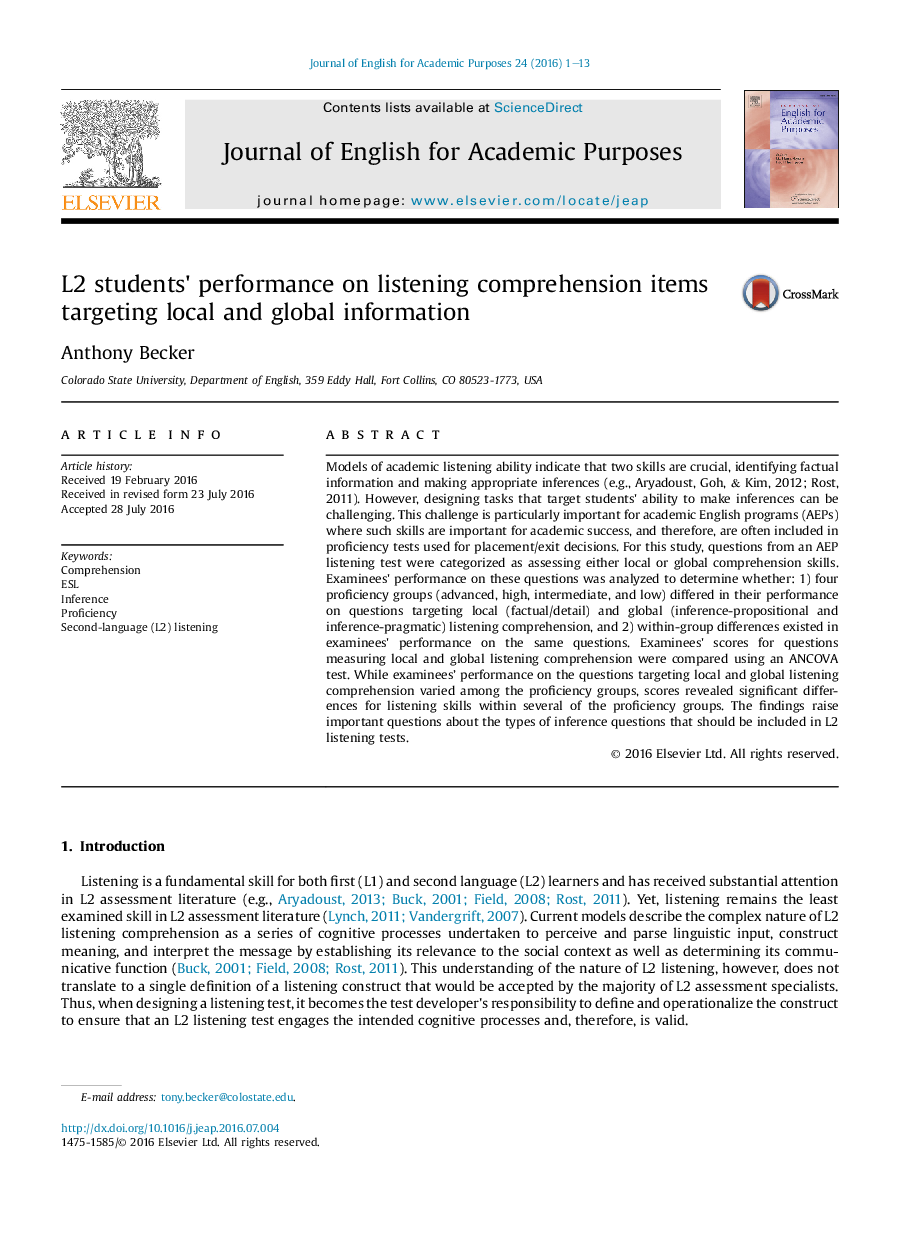| کد مقاله | کد نشریه | سال انتشار | مقاله انگلیسی | نسخه تمام متن |
|---|---|---|---|---|
| 360126 | 620434 | 2016 | 13 صفحه PDF | دانلود رایگان |
• Significant main effect found for proficiency group.
• Significant main effect found for listening skill-type.
• Higher-proficiency students did better with local and global comprehension items.
• All groups performed worst on pragmatic-based inference items.
Models of academic listening ability indicate that two skills are crucial, identifying factual information and making appropriate inferences (e.g., Aryadoust, Goh, & Kim, 2012; Rost, 2011). However, designing tasks that target students' ability to make inferences can be challenging. This challenge is particularly important for academic English programs (AEPs) where such skills are important for academic success, and therefore, are often included in proficiency tests used for placement/exit decisions. For this study, questions from an AEP listening test were categorized as assessing either local or global comprehension skills. Examinees' performance on these questions was analyzed to determine whether: 1) four proficiency groups (advanced, high, intermediate, and low) differed in their performance on questions targeting local (factual/detail) and global (inference-propositional and inference-pragmatic) listening comprehension, and 2) within-group differences existed in examinees' performance on the same questions. Examinees' scores for questions measuring local and global listening comprehension were compared using an ANCOVA test. While examinees’ performance on the questions targeting local and global listening comprehension varied among the proficiency groups, scores revealed significant differences for listening skills within several of the proficiency groups. The findings raise important questions about the types of inference questions that should be included in L2 listening tests.
Journal: Journal of English for Academic Purposes - Volume 24, December 2016, Pages 1–13
